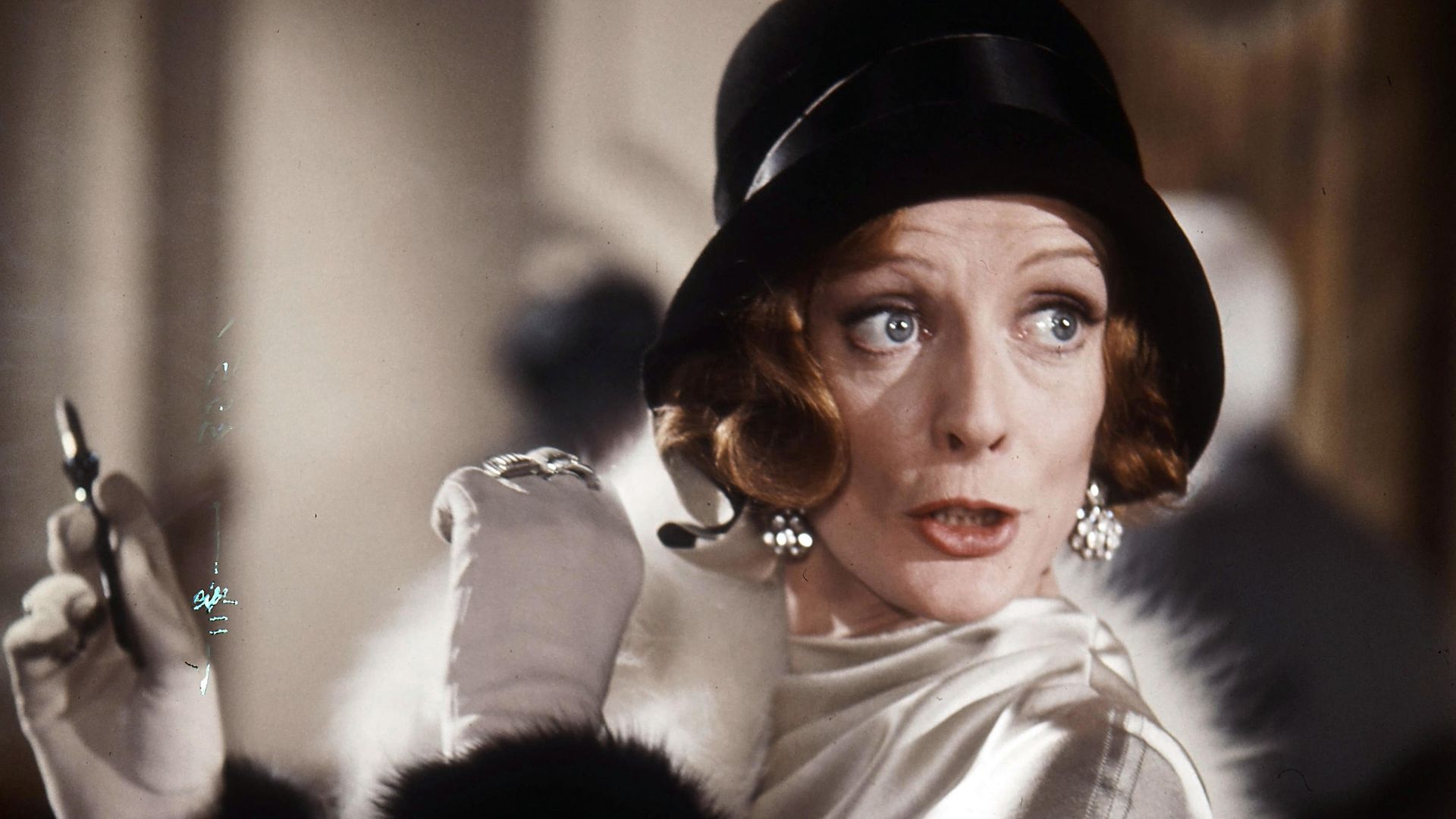
TIM WALKER on Dame Maggie Smith, an actress able to make people laugh, on and off screen.
When I went to see Dame Maggie Smith appearing in A German Life at the Bridge Theatre in London, I was invited backstage to see her after the curtain went down.
It was a hot night in 2019 and the octogenarian actress had been out on stage alone for one hour and 40 minutes playing Brunhilde Pomsel, Joseph Goebbels’ secretary, talking with chilling insouciance about what she had seen and heard during the war years in Berlin. It had been a bravura performance, and, towards the end of the run, Maggie had every right to head home immediately it was over to get some sleep.
There she was, however, in her dressing room, poised, alert and holding court to a group of admirers and friends, including the actress Frances Barber, and coming out with one-liners worthy of Violet Crawley, the Dowager Countess of Grantham, in the hit television series Downton Abbey.
Frances had asked her if she planned to attend Sir Ian McKellen’s impending 80th birthday party and she said she’d love to, paused for a moment, and then asked where it was going to be held. Frances told her it was going to be in Bolton.
“Bolton?” riposted Maggie, in a voice that cracked us all up because, in its total sense of shock, it was pure Violet Crawley.
There are two sides to this actress, which go some way towards explaining why she is so entertaining: the professional in her, who is congenitally incapable of saying no to good offers of work, and then the private, grounded Maggie, who just wants to relax and potter about her garden in the Sussex countryside.
“I sighed when I read the script to A German Life because it was something different for me and I knew I had to do it, but I also knew how exhausting it was going to be,” she told us. “Takes total concentration to get into the head of someone like Brunhilde. I can’t see why I can’t just accept quick cameo parts in films, in and out and back watering the roses in the afternoon.”
She added that she had regularly implored the Downton Abbey writer Julian Fellowes to do away with her character in the long-running series. “Every time I see a Downton script, I always look hopefully for my death scene,” she told us. “Always I am disappointed.”
Of course, Julian appreciated that Maggie has always been indispensable to his series, and, indeed, she invests every project she involves herself in with that indefinable quality called class.
I have talked to her son Toby Stephens – by her marriage to the late actor Sir Robert Stephens – about her and asked him to explain what it was that made her so special and he said simply “she’s just mum, there’s no one else quite like her”.
On screen and on stage, Maggie has always made it look easy. I remember her brilliant performances in plays such as Lettice and Lovage, alongside Margaret Tyzack and her magnificent Lady Bracknell in The Importance of being Earnest, as well as the parts that really made her name internationally, such as the title role in The Prime of Miss Jean Brodie and later as an Oscar nominee in Neil Simon’s California Suite, which, once again, won her a real-life Oscar.
Maggie’s life has always been about grace under pressure. Talking with her old friends Eileen Atkins, Judi Dench and Joan Plowright in Roger Mitchell’s documentary Nothing Like a Dame, it was clear that she had, in common with the other great actresses, had to cope with her share of setbacks in life.
Her marriage to Toby’s father ended painfully when his battle with alcoholism was hopelessly lost. She subsequently married the playwright Beverley Cross, and, after his death in 1998, poignantly admitted: “It seems a bit pointless, going on, on one’s own, and not having someone to share it with.”
She has had a series of battles, too, with her health over the years, and when, in 2007, I had the unenviable task of calling her agent to inquire if it was true that she had been diagnosed with breast cancer, no attempt was made to deny it or to ask for privacy. Maggie, like her old friend Lord Olivier before her, saw no point in stigmatising cancer. She had it, she fought it and she won, and that was all there was to it.
I think she is so funny on and off stage because ultimately she understands how cruel life can be, and she knows that, if only for a few moments, making people laugh spares them that reality.
Warning: Illegal string offset 'link_id' in /mnt/storage/stage/www/wp-includes/bookmark.php on line 357
Notice: Trying to get property 'link_id' of non-object in /mnt/storage/stage/www/wp-includes/bookmark.php on line 37







